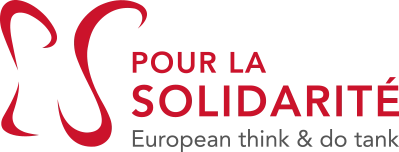Context and objectifs
In our constantly evolving societies, working increasingly requires the ability to master a “hybrid” environment (face-to-face and virtual), to be able to carry out activities by adapting one’s modes of action and relationships to compensate for the limitations of online and distance work. Work increasingly mobilises a fusion of skills that it is sometimes difficult to highlight, value and develop in traditional training and qualification systems. Many people, for a variety of reasons, find it more difficult to adapt to this development.
In this context, the Places-3T project has set itself the following objectives:
- To reflect on, study, develop and make sustainable collaborative spaces of the so-called “3rd type” supporting social, cultural and entrepreneurial innovation, allowing people to create promising ecosystems; these spaces are as much physical (premises) as virtual (platforms, networks) and hybrid;
- Build economic models applicable to these spaces, ensuring flexibility and sustainability, and allowing everyone to participate and contribute without resource constraints, in a spirit of solidarity;
- Identify and define the key elements that will give these implementations a good chance of success;
- To put in place models, approaches and tools to accompany the creators of “Spaces PLACES-3T” in their life cycle, development, sustainability and continuous evolution over time.
These 3rd type spaces aim to bring together a wide range of actors. These actors are both “targets” of the project and actors in their own right:
- People who are questioning their career path, young people in difficulty, adults undergoing retraining, or who are looking for a different way of working, in more rewarding structures;
- People aiming for more social justice, more sharing, less waste of resources, more respect for the planet, more respect for people in all their diversity;
- People who want to deploy their potential for creativity, imagination and entrepreneurship in innovative economic structures;
- People whose job is to accompany the previous ones and who wish to have a more participative, more innovative form of action; actors of the social economy;
- Actors of creation and culture;
- Institutional actors and economic and political decision-makers, who have the means, both decision-making and economic, to help these spaces to emerge, be hosted, supported, facilitated and made sustainable.
The main steps
In order to achieve the objectives of the project, the partners decided to create four innovative educational resources that can be used by the mentioned actors. These resources are:
- Study on the highlighting of key success factors, economic models and hybridization processes of spaces PLACES-3T: based on innovative practices, the project would highlight their key success factors and economic models, pivotal elements allowing a change of context to make possible a reappropriation of these elements, and concrete elements supporting a possible hybridization of spaces;
- Methodology for supporting the creation, animation and sustainability of spaces PLACES-3T: create a methodology for supporting the creation, animation and sustainability of a PLACES-3T space, whether real, virtual or hybrid;
- Pilot actions in the field and sharing of experiences: example of implementation either on existing sites or on sites in the making;
- Report on the maximisation of impacts, with lessons learned and recommendations: capitalising on how to maximise impacts and ensure the sustainability of project products.
Partners
In the framework of an Erasmus+ strategic partnership, this project brings together 7 structures with specific and complementary fields of expertise spread over 5 regions in 5 European countries:
- Smart (Belgium) (leader)
- FREREF (Belgium) (co-coordinator)
- AFPA (Auvergne-Rhône-Alpes, France)
- CEIS (Emilia Romagna, Italy)
- FUEIB (Islas Baleares, Spain)
- DFOIW2W (Netherlands)
- POUR LA SOLIDARITÉ – PLS (Belgium)
Places-3T in short
- Kick-off meeting, visioconference, 15-16 October 2020
- Study on key success factors, business models and hybridization processes of P3T spaces, Sept. 2020 – May 2022
- First training activity, Italy, September-October 2021
- Report on maximisation of impacts, lessons learned and recommendations, October 2021 – August 2023
- Methodology to support the creation, animation and sustainability of P3T spaces, March 2021 – April 2023
- Public event, Brussels, 22 November 2022
- Second training activity, Palma, March 2023
- Pilot Field Actions, February 2022 – June 2023
- Final conference, Belgium (Brussels, LaVallée), 5 July 2023

